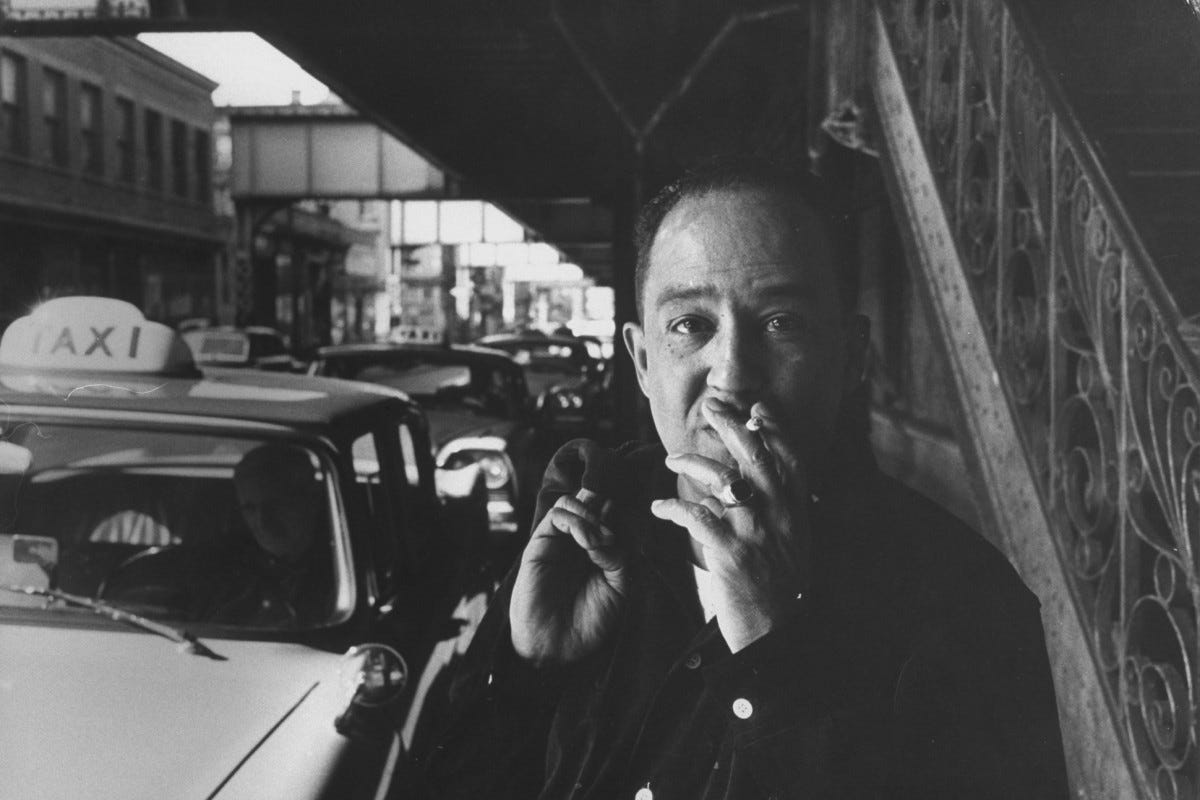
Today’s poem is one of the most recognizable and influential American poems of the twentieth century.
Langston Hughes was a central figure in the Harlem Renaissance, the flowering of black intellectual, literary, and artistic life that took place in the 1920s in a number of American cities, particularly Harlem. A major poet, Hughes also wrote novels, short stories, essays, and plays. He sought to honestly portray the joys and hardships of working-class black lives, avoiding both sentimental idealization and negative stereotypes.Hughes’s position in the American literary scene seems to be secure. David Littlejohn wrote that Hughes is "the one sure Negro classic, more certain of permanence than even Baldwin or Ellison or Wright. … His voice is as sure, his manner as original, his position as secure as, say Edwin Arlington Robinson’s or Robinson Jeffers’. … By molding his verse always on the sounds of Negro talk, the rhythms of Negro music, by retaining his own keen honesty and directness, his poetic sense and ironic intelligence, he maintained through four decades a readable newness distinctly his own."
Hughes’s poems have been translated into German, French, Spanish, Russian, Yiddish, and Czech; many of them have been set to music.
-bio via Poetry Foundation
Get full access to The Daily Poem Podcast at dailypoempod.substack.com/subscribe
More Episodes
 2024-04-29
2024-04-29
 2024-04-26
2024-04-26
 2024-04-25
2024-04-25
 2024-04-22
2024-04-22
 2024-04-19
2024-04-19
 2024-04-18
2024-04-18
 2024-04-17
2024-04-17
 2024-04-16
2024-04-16
 2024-04-15
2024-04-15
 2024-04-12
2024-04-12
 2024-04-11
2024-04-11
 2024-04-09
2024-04-09
 2024-04-08
2024-04-08
 2024-04-04
2024-04-04
 2024-04-03
2024-04-03
Create your
podcast in
minutes
- Full-featured podcast site
- Unlimited storage and bandwidth
- Comprehensive podcast stats
- Distribute to Apple Podcasts, Spotify, and more
- Make money with your podcast
It is Free
- Privacy Policy
- Cookie Policy
- Terms of Use
- Consent Preferences
- Copyright © 2015-2024 Podbean.com




